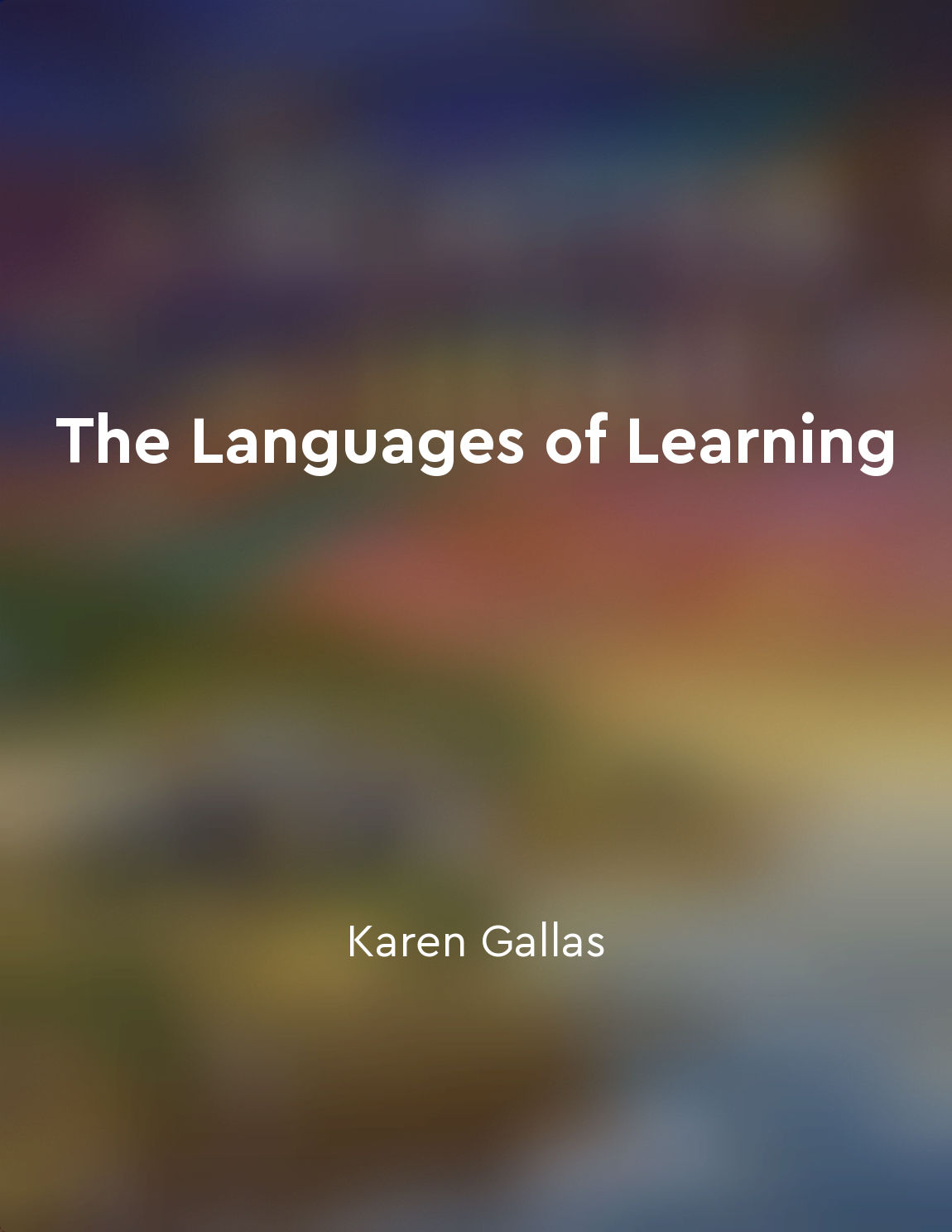Teachers must create a socially inclusive environment for children to express themselves from "summary" of The Languages of Learning by Karen Gallas
Teachers play a crucial role in creating an environment where children feel safe and encouraged to express themselves. This inclusive environment is essential for fostering students' language development and social interactions. When children feel accepted and supported, they are more likely to engage in meaningful conversations and activities with their peers. By promoting social inclusivity in the classroom, teachers are not only creating a space where children can freely express themselves but also where they can learn from one another. This collaborative learning environment allows students to share their perspectives, ideas, and experiences, leading to a richer and more diverse learning experience. Furthermore, when children feel included and valued in the classroom, they are more motivated to participate and take risks in their learning. This sense of belonging can boost students' confidence and self-esteem, enabling them to explore their interests and abilities. In an inclusive classroom, teachers model respect, empathy, and open-mindedness, which helps children develop these important social and emotional skills. By fostering a culture of acceptance and understanding, teachers can create a supportive community where every child feels heard and valued.- Creating a socially inclusive environment is not only beneficial for children's language development and social interactions but also for their overall well-being and academic success. Teachers have a responsibility to build a classroom where every child feels respected, accepted, and free to express themselves authentically. This inclusive setting lays the foundation for a positive and enriching learning experience for all students.
Similar Posts
Begin by understanding the role of thinking in learning
To truly support and enhance learning, we must first recognize the critical importance of thinking in the process. Thinking is ...

Amplify the voices of neurodivergent individuals in all spaces
The idea of amplifying the voices of neurodivergent individuals in all spaces is rooted in the fundamental principle of inclusi...
Indigenous cultures held deep knowledge traditions
In American history, Indigenous cultures have long been recognized for their deep knowledge traditions. These traditions encomp...
Critical thinking skills are essential for success in the modern world
In today's rapidly changing world, the ability to think critically is more important than ever before. This is because critical...

Be present in the moment
The idea of being present in the moment is a simple yet powerful concept that can have a profound impact on our lives. It is ab...
Liberation requires transformation of society
Liberation is not simply the act of freeing individuals from oppression. It goes beyond that - it demands a complete transforma...
Developing motor skills through structured activities
Structured activities play a crucial role in the development of motor skills in individuals. These activities provide a systema...
Recognizing the impact of effective teaching on students' lives
Effective teaching goes beyond just delivering information to students; it has a profound impact on their lives. As educators, ...
Students are not taught critical thinking
The education system today often fails to teach students how to think critically. Instead of encouraging students to question i...
Systemic racism perpetuates inequality in the education system
The issue of systemic racism in education is deeply rooted in our society, perpetuating a cycle of inequality that disproportio...


